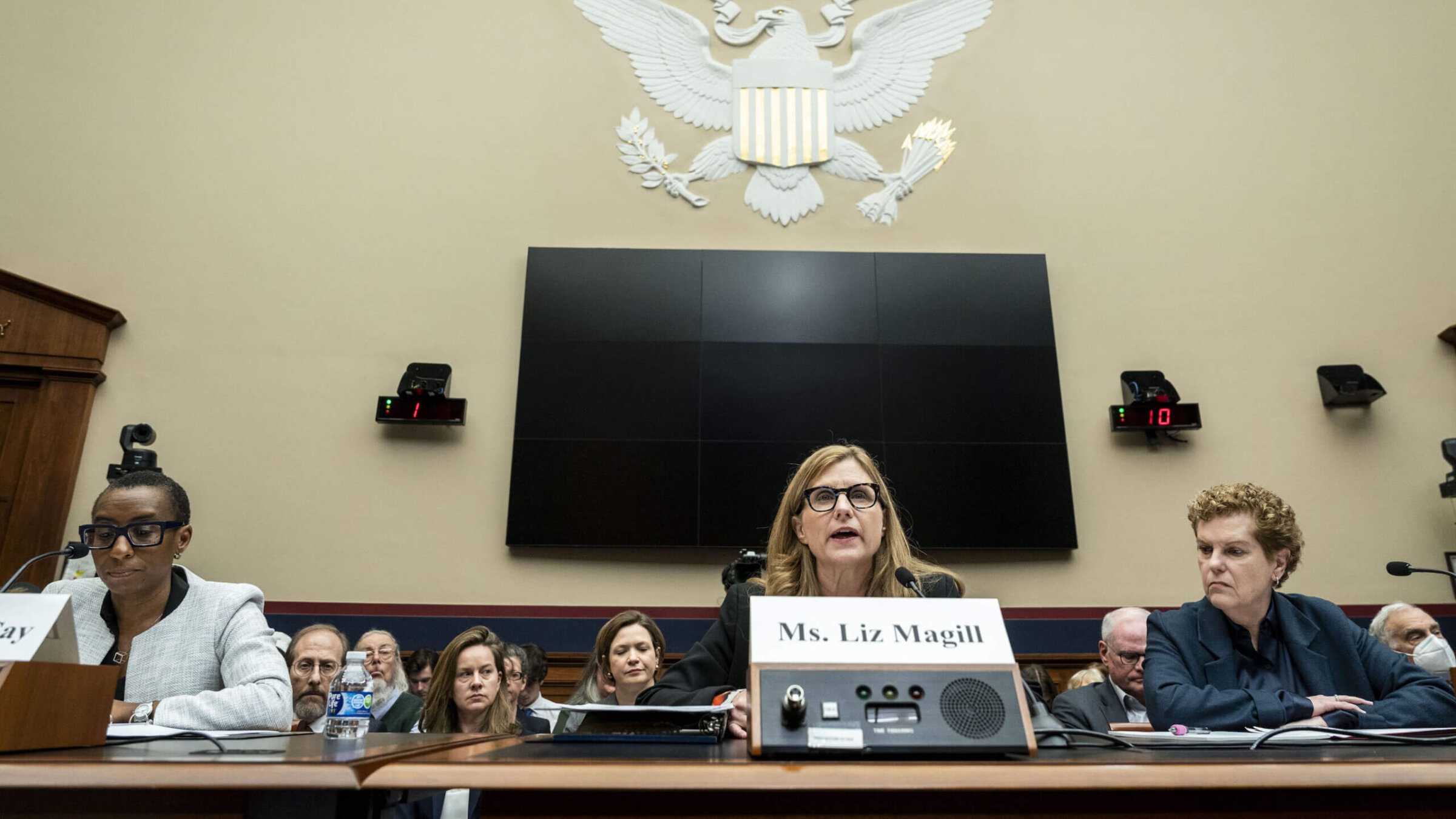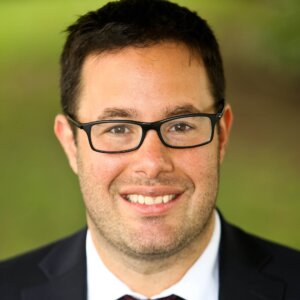University presidents waffled in condemning calls for genocide. Jews are on our own as much as ever
To suggest that antisemitic hate speech is problematic only when it violates university policy is a profound failure of leadership

From left: Claudine Gay, president of Harvard University, Liz Magill, president of the University of Pennsylvania, and Pamela Nadell, professor of history and Jewish studies at American University, during a House Education and the Workforce Committee hearing on Tuesday. Photo by Haiyun Jiang/Bloomberg/Getty Images
Hours after hundreds of white supremacists marched with torches in Charlottesville chanting “Jews will not replace us,” the condemnations started flowing.
Harvard University issued a statement characterizing the events in Charlottesville as “deeply distressing.” The “hatred, racism, and violence,” it continued, deserve “our strongest condemnation.” The University of Pennsylvania and MIT issued similar statements.
These strong and unequivocal condemnations were comforting to most Americans, and especially to Jewish communities in the U.S. and around the world.
Only seven years later, representatives of the same three universities — testifying under oath in front of Congress — were unable to unequivocally say that similarly antisemitic hate speech would constitute a violation of their universities’ policies if it happened on their own campuses.
When Rep. Elise Stefanik asked if, hypothetically, calling for a genocide of Jews on campus is against the code of conduct, the answers we heard from the presidents of these three highly respected universities included University of Pennsylvania president Liz Magill’s statement that “It is a context-dependent decision,” and Harvard president Claudine Gay’s assertion that “It’s when that speech crosses into conduct that violates our policies.”
As a faculty member of Brown University, I’ve personally heard Jewish students at elite academic institutions — as well as parents of students, and even fellow faculty members — express that they feel unsafe on campus. They’ve told me they often don’t feel supported by their universities’ faculties and administrations when confronting antisemitism on campus.
I have myself received threats after arguing that students and faculty engaging in antisemitic rhetoric should be expelled. I was told I should not be teaching anywhere and that I’m a “terrorist turd,” among other things. Let me tell you: Getting those emails is scary.
Instead of calming our fears, the answers the university presidents gave to Stefanik’s very simple question were terrifying. They reinforced the feelings of abandonment that Jewish students on campuses, some of whom are already dealing with verbal and sometimes physical violence, have faced for quite some time.
I’m not sure what motivations the university presidents had for their inadequate performances in Congress, which have already been heavily criticized. Perhaps they were trying to avoid getting into a discussion on the spot regarding what terms should, or should not, be considered protected free speech on campus. Magill, in a video released the day after the hearing, trying to fix things, claimed that she was focused on the University of Pennsylvania’s policies and not on the substance of the question itself.
But regardless of whether it was a genuine mistake, the truth is that the wishy-washy answers we heard constitute a significant moral failing. And the inability of the presidents to apply proper judgment in the moment represents a deep and unprecedented leadership failure. It should not require any context to condemn calls for genocide right on the spot.
And if, in fact, the codes of conduct of these universities do not literally condemn incitement to violence or mass murder unless it turns into violent action, then there’s something deeply wrong with those codes — and that indicates a deeper institutional failure.
I’ve long been a defender of freedom of speech in universities and academic freedom, including when it comes to criticizing Israel and its policies.
But the line should be very clear: Incitement to violence, and calling for mass murder of Jews or any other population — which history tells us can very easily transform into action — cannot be tolerated.
In 2023, with well-funded diversity, equity and inclusion programs operating across every aspect of society, it should not be so difficult for Jews to demand our right to be protected against hate speech.
However, since Oct. 7, it has become increasingly clear to all of us Jews that, as has been true for centuries, we’re pretty much on our own.





















